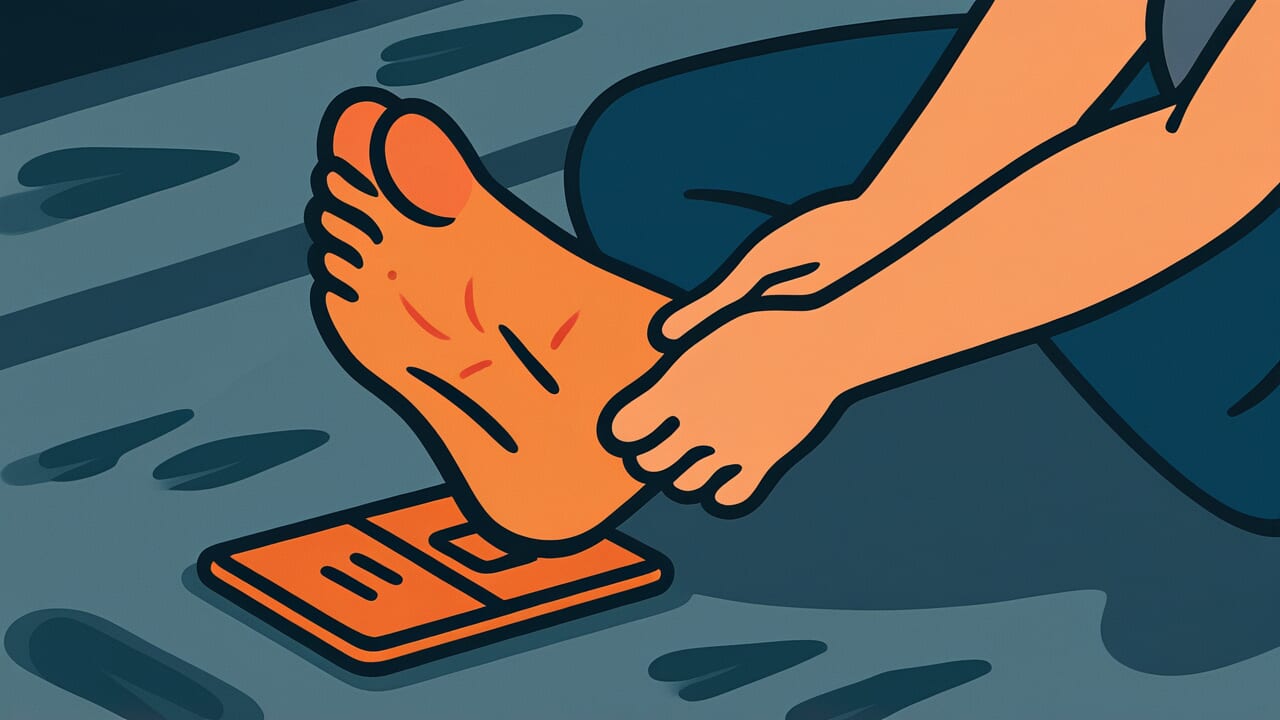How to Read “When the feet are cold, the heart is hurt”
Ashi samukereba kokoro o yaburu
Meaning of “When the feet are cold, the heart is hurt”
“When the feet are cold, the heart is hurt” is a proverb that warns about health. It teaches that cooling your feet can damage your heart.
When your feet get cold, blood circulation worsens. This poor circulation affects the heart, which is the center of your body.
This saying also has a metaphorical meaning. The feet represent people in lower positions, while the heart represents leaders or the nation.
If you ignore the suffering and complaints of those below, it will eventually harm the entire organization or country. Small problems at the edges might seem unimportant.
But when these problems pile up, they cause serious damage to the core. This is a warning that leaders must not overlook.
The proverb teaches leaders to listen to the voices of those who work below them. Even today, it’s used in business and organizations.
It points out the danger of ignoring complaints and problems from the workplace.
Origin and Etymology
This proverb likely comes from ancient Chinese medical philosophy. Traditional Eastern medicine has long taught that all parts of the body are closely connected.
The relationship between feet and heart was especially important. Doctors understood that cold feet worsen blood circulation, which puts strain on the heart.
“When the feet are cold, the heart is hurt” probably started as medical advice. The importance of keeping your feet warm appears repeatedly in Edo period health guides.
This wisdom was widely known among common people. What’s interesting is how this saying evolved into a political metaphor.
People began using feet to represent lower-ranking people and the heart to represent leaders or the nation. If you ignore the suffering of those below, it will eventually corrupt the entire organization.
This medical observation about cold feet harming the heart worked perfectly as a metaphor for social structure. Concrete wisdom based on bodily experience developed into words that express abstract social truths.
Usage Examples
- When we ignored employee complaints, “when the feet are cold, the heart is hurt” came true, and morale dropped across the entire company
- Policies that ignore local residents’ voices will eventually lead to distrust in government, just like “when the feet are cold, the heart is hurt”
Universal Wisdom
“When the feet are cold, the heart is hurt” reveals a fundamental truth about human society. Small problems and suffering at the edges, when ignored, eventually lead to the collapse of the whole.
Why do people overlook problems at the edges? Those at the center find it hard to feel what happens far from them.
People with power and position see comfort around themselves. They don’t notice the coldness in distant places. But just as the body is connected, society is also one organism.
Pain at the edges always reaches the center. This proverb has been passed down for so long because this structural problem repeats whenever humans form organizations.
Those who rise to the top always face the same fate. They lose sight of what’s beneath their feet. Small complaints from those below, when ignored, always grow into great anger.
Our ancestors saw this social truth through the body, the most familiar thing to us. They transformed the discomfort of cold feet, which everyone experiences, into wisdom that predicts organizational crisis.
This represents both humanity’s essential weakness and the crystallization of wisdom to overcome it.
When AI Hears This
The expression that cold feet hurt the heart is surprisingly accurate from a neuroscience perspective. Our brain doesn’t just process signals from foot temperature sensors as “cold” information.
This temperature information travels through the spinal cord to the brain. Along the way, it must pass through the amygdala and anterior cingulate cortex, which control emotions.
Physical signals of cold feet directly stimulate emotional processing circuits. Research shows that when hand and foot temperature drops, the brain increases secretion of cortisol, a stress hormone.
Even more interesting is an experiment showing that simply warming the feet reduced anxiety scores by an average of 23 percent. This matches the effectiveness of anti-anxiety medication.
Embodied cognition theory suggests our thoughts and emotions don’t arise only in the brain. They emerge when the state of the entire body is integrated.
Cold feet aren’t just a peripheral problem. They’re an important signal that makes the brain judge “this body is now in a critical situation.”
This proverb already captured through experience what modern science is only beginning to prove. The heart and body aren’t separate things but function as one circulating system.
Lessons for Today
This proverb teaches us the importance of listening to small voices. If you belong to any organization or group, don’t overlook small problems happening at the edges.
They may seem small now, but if ignored, they will always grow into big problems. Leaders especially need to stay aware of what’s happening far from them.
Voices from the workplace, customer complaints, worries of subordinates. These are important signs showing the organization’s health. When you’re comfortable at the center, you don’t notice the coldness beneath your feet.
That’s why you need to make a conscious effort to look at the edges. On the other hand, if you feel you’re at the edge of an organization, don’t be afraid to speak up.
The discomfort or dissatisfaction you feel might be important information about the organization’s overall health. Don’t swallow it because it seems like a small problem.
Communicating it appropriately can ultimately protect the entire organization. The health of the whole begins with the health of the edges.



Comments